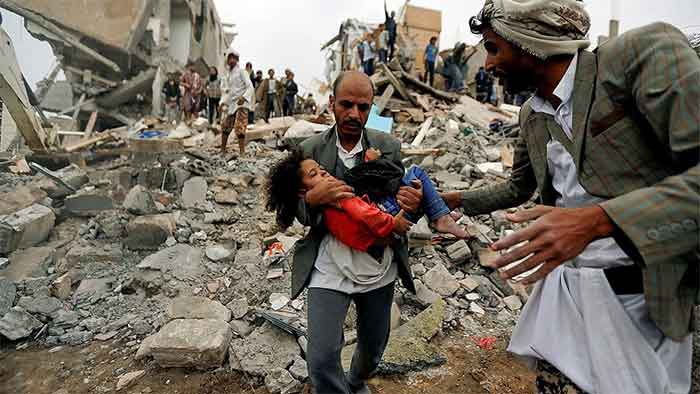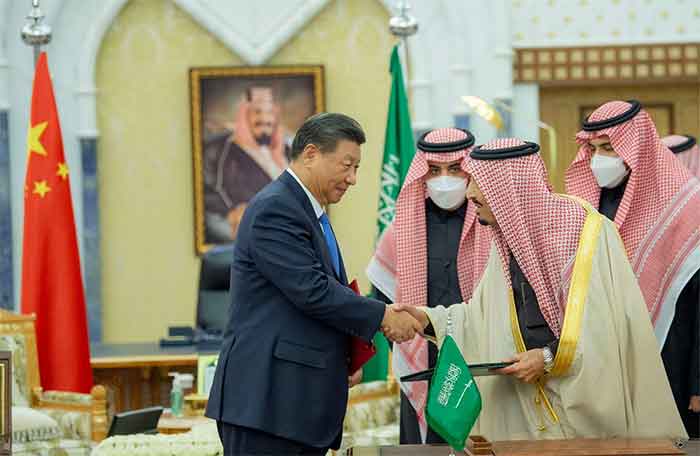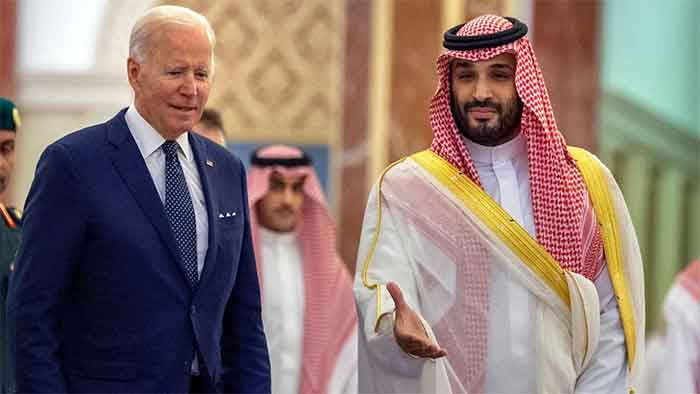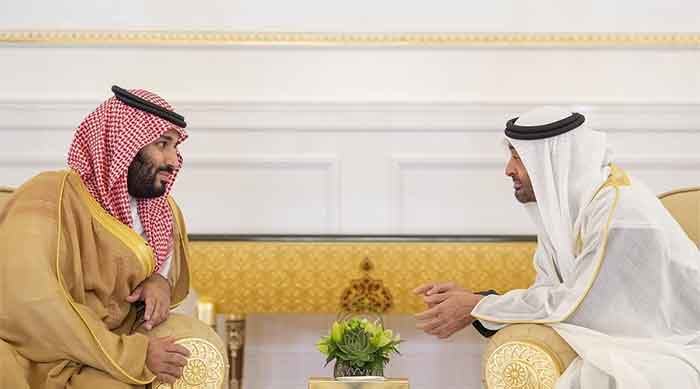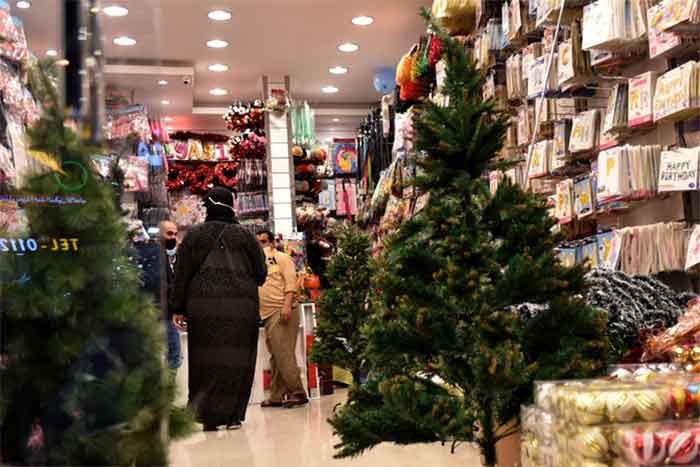
Long banned, Christmas has finally, at least tacitly, arrived in Saudi Arabia; just don’t use the name in marketing or be ostentatious about your tree.
Coffeeshops serving beverages in red cups with snowflakes on them are ok. So is the sale of soap bars named ‘Tis the Season and Vanilla Bean Noel.
Christmas trees that sell at up to US$3,000 a piece are slightly more complicated. The religious police no longer harass shopkeepers for selling items that reference a non-Muslim holiday. But shopkeepers remain uncertain about trees and sometimes still keep them in a backroom. Religious references and carols remain beyond the pale.
The loosening of the rules of the game in a country that still bans non-Muslim worship in public and the building of non-Muslim houses of worship is part of an effort to ensure that the kingdom does not lag in the competition with the United Arab Emirates and Qatar to project itself as an enlightened, modern country that can attract foreign investment and vie for foreign talent and tourists.
The loosening is also part of an effort to position the kingdom as a beacon of Muslim moderation in competition with the UAE, Qatar, and Indonesia.
While Indonesia, the world’s largest Muslim-majority country and democracy, is struggling with creeping conservatism, and Qatar is seeking to ensure football fans that it will welcome diversity of any kind during next year’s World Cup, the UAE has sprinted ahead by leaps and bounds.
In the last year, the UAE, where public references to Christmas and carols are not an issue and non-Muslim houses of worship exist alongside mosques, far-reaching legal reforms have been enacted that legalized alcohol and non-married cohabitation and this week ended censorship of cinematic releases. The caveat, like elsewhere in most of the Muslim world, is that the reforms are anchored in secular, not in Islamic law and jurisprudence.
Nahdlatul Ulama, the world’s largest Muslim civil society organization, that is at the forefront of the projection of Indonesian moderation has started a process of reform of Muslim jurisprudence but has so far shied away from hot button issues that top the agenda of its Middle Eastern rivals.
Saudi loosening of norms also serves to distinguish the kingdom from other competitors for religious soft power and leadership of the Muslim world like Turkey and Iran that are governed by Islamists who either are inspired by or more strictly apply conservative interpretations of Islamic law. The loosening further aims to bolster economic reforms and efforts to diversify the economy and create jobs.
To be sure, Saudi Arabia has been signaling for several years that it is travelling down a road of greater religious tolerance and social liberalisation. Meetings between Saudi leaders and Evangelical and Jewish leaders and support for inter-faith dialogue served the purpose.
Crown Prince Mohammed bin Salman has turned the Muslim World League, once a major vehicle for the global propagation of Wahhabism, the ultra-conservative interpretation of Islam that dominated Saudi Arabia for its first 85 years, into the propagator of his vaguely defined concept of moderate Islam.
Mr. Bin Salman has also lifted the ban on women’s driving, liberalised gender segregation, created greater job and leisure opportunities for women, and generated a Western-style entertainment industry. But, like the UAE and Qatar, he has stopped short of fully abolishing male guardianship.
Saudi shops started catering several years ago to Valentine’s Day, long a no-go in the kingdom, by selling red roses, and in October Halloween costumes appeared for the first time in shop windows.
However, increasingly, same-sex relationships are emerging as a red line in Gulf social liberalization.
The kingdom’s top cleric, Grand Mufti Sheikh Abdulaziz bin Abdullah Al-Sheikh, came out swinging this week in a fatwa or religious opinion that denounced same-sex relationships. He appeared to be responding to a United Nations General Assembly resolution adopted earlier this month that called for recognition of “women in all their diversity”, including “gender identity” and “sexual orientation.”
In what amounted to rare public, albeit implicit, clerical criticism of Mr. Bin Salman’s liberalisations, Mr. Al-Sheikh also appeared to be reacting to a major electronic dance festival, the Middle Beast Soundstorm, held near Riyadh in recent days and reportedly attended by 732,000 people.
Some reports suggested that some attendees had been publicly intoxicated and had displayed behaviour that raised suspicions that they were queers.
The kingdom punishes homosexuality by death.
Mr. Al-Sheikh, a descendant of Muhammad ibn Abd al-Wahhab, the founder of Wahhabism, described homosexuality as among the “most heinous and ugliest crimes.”
He asserted that “human rights…find first and foremost position in God’s law and warned that “the whole world is afflicted with outrageous boldness, false claims, and despicable perversion, which is intended to strip man of his humanity!”
Mr. Al-Sheikh appeared to be drawing a red line for social reform on an issue that was likely to enjoy public support.
A recent public opinion poll concluded that 67 per cent of the people applauded the kingdom’s rejection of the UN resolution while 33 per cent said they did not have an opinion.
Scholar Matthew Hedges, who was arrested in the Emirates and sentenced to life in prison on charges of espionage while researching a just published book, noted that countering ‘immoral’ sexual conduct is one way Emirati authorities appeal to the public’s cultural sensitivities to justify the construction of a surveillance state.
Mr. Al-Sheikh’s fatwa contrasts starkly with efforts by Qatari officials to downplay criticism of the Gulf state’s anti-same sex laws and reassure LGBTQ fans that they would be welcome during next year’s World Cup and would even be allowed to fly the rainbow flag at games. LGBTQ Qataris insist that the same tolerance is not extended to them.
For Saudis, Mr. Al-Sheikh’s fatwa contains a cautionary note. Saudi Arabia may have enacted significant social liberalisations but beyond red lines they rest on a fragile fundament as long as they are not anchored in changes of religious doctrine and jurisprudence.
“While the changes (in Saudi Arabia) are potentially far-reaching, their ultimate direction is uncertain. Most…remain quite reversible. And while state structures and officials have accepted and even applauded the moves, some social resentment and resistance is still possible—and unintended consequences might still materialize,” warned scholars Yasmine Farouk and Nathan J. Brown.
A podcast version of this story is available on Soundcloud, Itunes, Spotify, Stitcher, TuneIn, Spreaker, Pocket Casts, Tumblr, Podbean, Audecibel, Patreon, and Castbox.
Dr. James M. Dorsey is an award-winning journalist and scholar and a Senior Fellow at the National University of Singapore’s Middle East Institute.

